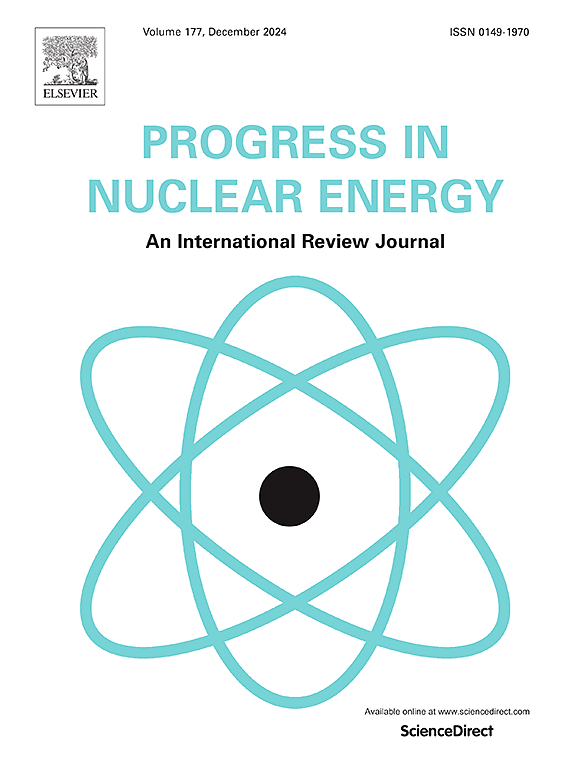Progress in understanding the formation and deposition behaviors of corrosion and oxidation products in lead-cooled fast reactors
IF 3.3
3区 工程技术
Q1 NUCLEAR SCIENCE & TECHNOLOGY
引用次数: 0
Abstract
The Lead-cooled fast reactor (LFR) is regarded as a promising fourth-generation advanced power reactor. However, the development of LFR is limited by the corrosion problems of structural materials. Corrosion and oxidation products can deposit on the heat transfer surface during the migration process of the coolant, leading to heat transfer degradation and posing a serious threat to reactor operation safety. In recent years, researchers have conducted extensive research on corrosion protection, as well as the migration, deposition, and impact of corrosion and oxidation products. This paper focuses on oxygen control technology, summarizes the current corrosion protection technologies for lead-cooled fast reactors, introduces the formation mechanisms of common corrosion and oxidation products in lead-cooled fast reactors, briefly summarizes the migration and deposition mechanisms of corrosion and oxidation products, and finally puts forward suggestions for further research based on the current research progress.
铅冷快堆中腐蚀和氧化产物形成和沉积行为的研究进展
铅冷快堆(LFR)是一种极具发展前景的第四代先进动力堆。然而,结构材料的腐蚀问题限制了LFR的发展。在冷却剂迁移过程中,腐蚀和氧化产物会沉积在传热表面,导致传热退化,对反应堆运行安全构成严重威胁。近年来,研究人员对腐蚀防护以及腐蚀和氧化产物的迁移、沉积和影响进行了广泛的研究。本文以氧控制技术为重点,总结了目前铅冷快堆的防腐技术,介绍了铅冷快堆中常见的腐蚀和氧化产物的形成机理,简要总结了腐蚀和氧化产物的迁移和沉积机理,最后根据目前的研究进展提出了进一步研究的建议。
本文章由计算机程序翻译,如有差异,请以英文原文为准。
求助全文
约1分钟内获得全文
求助全文
来源期刊

Progress in Nuclear Energy
工程技术-核科学技术
CiteScore
5.30
自引率
14.80%
发文量
331
审稿时长
3.5 months
期刊介绍:
Progress in Nuclear Energy is an international review journal covering all aspects of nuclear science and engineering. In keeping with the maturity of nuclear power, articles on safety, siting and environmental problems are encouraged, as are those associated with economics and fuel management. However, basic physics and engineering will remain an important aspect of the editorial policy. Articles published are either of a review nature or present new material in more depth. They are aimed at researchers and technically-oriented managers working in the nuclear energy field.
Please note the following:
1) PNE seeks high quality research papers which are medium to long in length. Short research papers should be submitted to the journal Annals in Nuclear Energy.
2) PNE reserves the right to reject papers which are based solely on routine application of computer codes used to produce reactor designs or explain existing reactor phenomena. Such papers, although worthy, are best left as laboratory reports whereas Progress in Nuclear Energy seeks papers of originality, which are archival in nature, in the fields of mathematical and experimental nuclear technology, including fission, fusion (blanket physics, radiation damage), safety, materials aspects, economics, etc.
3) Review papers, which may occasionally be invited, are particularly sought by the journal in these fields.
 求助内容:
求助内容: 应助结果提醒方式:
应助结果提醒方式:


